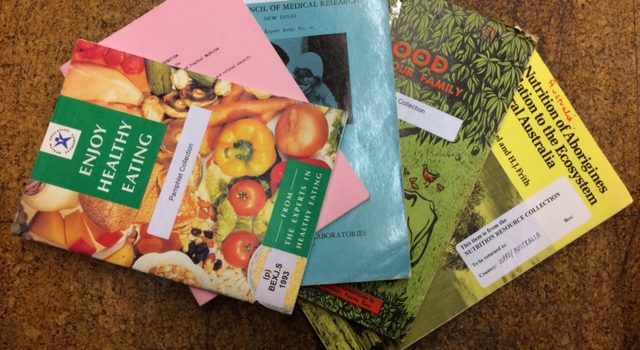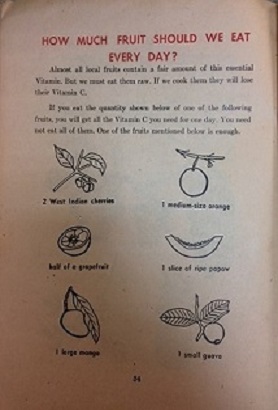Since beginning work on Nutrition we’ve uncovered lots of literature originating from countries outside the UK. Foods For Your Family (BEX.74), for example, is a 1952 pamphlet produced by the Puerto Rican Department of Education and designed to promote the benefits of a balanced diet amongst rural populations. ‘The body is like a machine’, the pamphlet claims, before explaining, ‘[you] too are the owner of one of these machines […] given to you by God for you to use and take care of’. Accordingly, the pamphlet advises eating plenty of fruits as a way of getting ‘all the Vitamin C you need for one day’. ‘[When] people do not get enough Vitamin C’, it continues, ‘[…] they tire easily and feel lifeless’. West Indian cherries, mammee apples, papaws, mangos, guavas, and soursops in varying quantities all constitute approved and very exotic sources of Vitamin C!
Other pamphlets in the Nutrition class include those concerning the dietary habits of UK civilians during WW2. Gertrude Wagner’s Vegetable Consumption in Four Selected Towns: A Survey Made for the Ministry of Food (BEX.42) provides interesting analysis on families and their seemingly ambivalent attitudes towards their greens. According to statistics presented in the pamphlet, top of the vegetable ‘dislike list’ is the humble marrow, closely followed by parsnips, watercress, leeks, and French beans. And the reasons given for not serving vegetables every day? ‘Too expensive’; ‘Too busy washing, cleaning, working’; ‘Do not like or care for vegetables’; ‘Housewife ill or unable to shop or cook’ . . .
The Library & Archives Service pamphlet collection is now located in the gallery overlooking the Reading Room.








